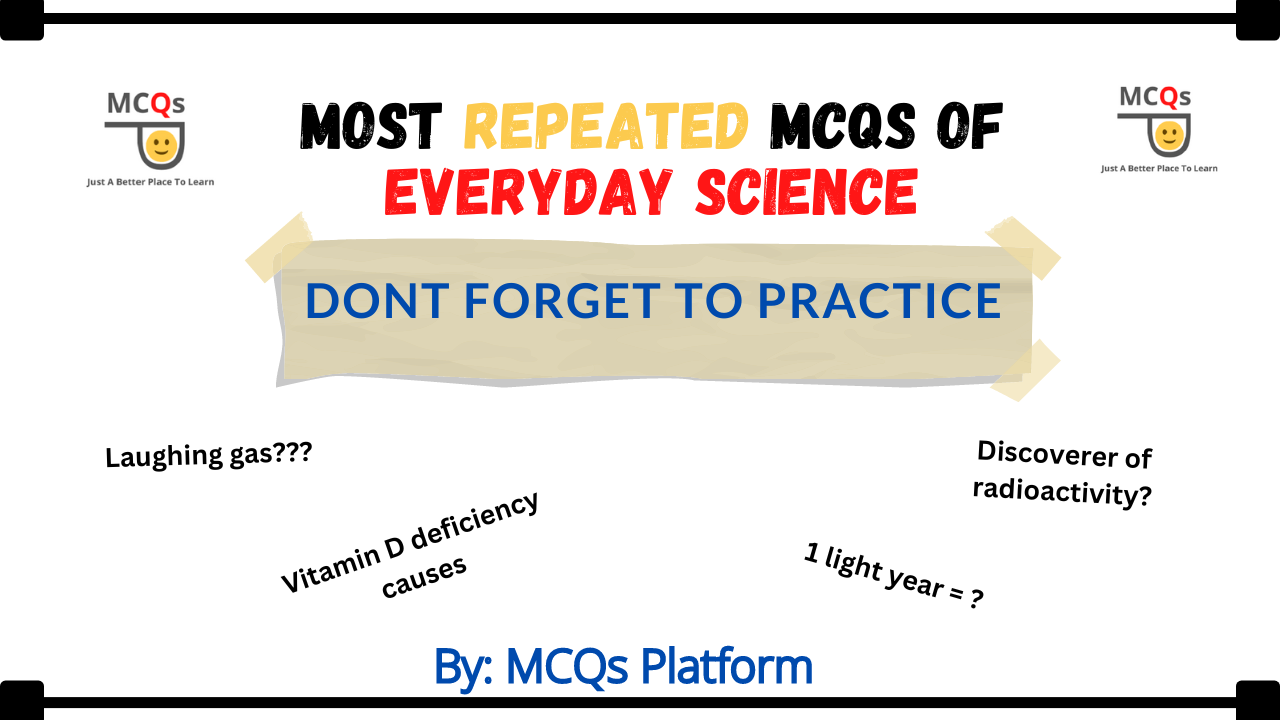
This post will teach you all about the repeated MCQs of Everyday Science. These MCQs will help you prepare for many tests conducted all across the country by FPSC, PPSC, SPC, BPSC, NTS, CTS, OTS, ITS, etc. You can also get these repeated MCQs of everyday science in Quiz form soon.
So, this post would be helpful for you if you would like to secure a good score in the test for Assistant director of FIA, Assistant of FIA, Inspector Custom, Security officer, IB, Punjab Police, Punjab Rangers, Assistant Director Nadra, etc. then you are highly recommended to practice these MCQs. Once you get through these repeated MCQs of everyday science, you will definitely be able to pass any test that includes MCQS of everyday science.
Important MCQs of Everyday Science
In which part of body Red blood corpuscles are formed ____________?
A. Kidneys
B. Bone marrow
C. Liver
D. Heart
The largest organ of human body is?
A. Skin
B. Heart
C. Liver
D. Kidney
The human medulla oblongata is a component.
A. Lungs
B. Brain
C. Heart
D. Sex organ
A person can’t see well for a short while after coming into a dark room from bright light due of the?
A. Iris unable to dilate the pupil immediately
B. Retina becomes insensitive momentarily
C. Eyes is unable to adjust itself immediately
D. Distance between the lens and retina take time to adjust
Which is not a part of Darwinism?
A. Inheritance for acquired characters
B. Natural selection
C. Over production
D. Competition for survival
When measuring the ____________, a hygrometer is used.
A .Humidity of air
B. Density of milk
C. Speed of sound
D. Specific gravity of liquids
Which thing transforms television signals into light signals?
A. Decoder
B. Transistor
C. Optical fiber
D. Photo diode
non-metallic mineral is?
A. Gypsum
B. Magnesium
C. Manganese
D. Bauxite
In a kettle, water is heated. Convection heats the water inside. A person seated close to the fire is heated by ?
A. Radiation
B. Convection
C. Conduction
D. Reflection
